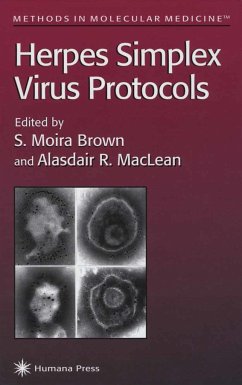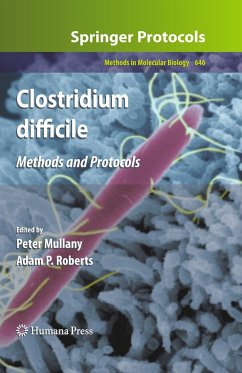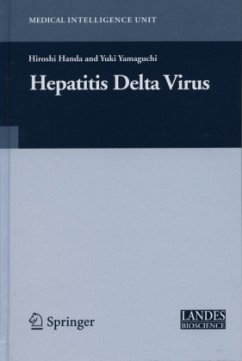
Human Retrovirus Protocols
Virology and Molecular Biology
Herausgegeben: Zhu, Tuofu
Versandkostenfrei!
Versandfertig in 6-10 Tagen
113,99 €
inkl. MwSt.

PAYBACK Punkte
57 °P sammeln!
A cutting-edge collection of basic and state-of-the-art methods optimized for investigating the molecular biology of this class of retrovirus. These readily reproducible techniques range from methods for the isolation and detection of human retroviruses to cutting-edge methods for exploring the interplay between the viruses and the host. Here, the researcher will find up-to-date techniques for the isolation and propagation of HIV, HTLV, and foamy virus from a variety of sources. There are also assays for determining the cell tropism of HIV-1, the coreceptor usage of HIV-1, and human gene expre...
A cutting-edge collection of basic and state-of-the-art methods optimized for investigating the molecular biology of this class of retrovirus. These readily reproducible techniques range from methods for the isolation and detection of human retroviruses to cutting-edge methods for exploring the interplay between the viruses and the host. Here, the researcher will find up-to-date techniques for the isolation and propagation of HIV, HTLV, and foamy virus from a variety of sources. There are also assays for determining the cell tropism of HIV-1, the coreceptor usage of HIV-1, and human gene expression with HIV-1 infection by microarrays, as well as for phenotyping HIV-1 infected monocytes and examining their fitness. Highlights include the detection and quantification of HIV-1 in resting CD4+, a new cloning system for making recombinent virus, cDNA microarrays, and the determination of genetic polymorphisms in two recently identified HIV-1 co-factors that are critical for HIV-1 infection. Advances in our understanding of human retroviruses have been occurring at a very rapid pace and have contributed significantly to the development of new biotechnologies. In Human Retrovirus Protocols: Virology and Molecular Biology, recognized international researchers describe in detail the basic and state-of-the-art methods they have optimized for investigating the molecular biology of this class of retrovirus. These readily reproducible techniques range from proven methods for the isolation and detection of human retroviruses to advanced methods for exploring the interplay between the viruses and the host. Here, the researcher will find up-to-date techniques for the isolation and propagation of HIV, HTLV, and foamy virus from peripheral blood mononuclear cells (PBMC), blood monocytes, brain tissues, cerebrospinal fluids, semen, the vagina, and lymph nodes. There are also assays for determining the cell tropism of HIV-1, the coreceptor usage of HIV-1, and human gene expression with HIV-1 infection by microarrays, as well as for phenotyping HIV-1 infected monocytes and examining their fitness. Highlights include the detection and quantification of HIV-1 in resting CD4+, a new cloning system for making recombinant virus, cDNA microarrays, and the determination of genetic polymorphisms in two recently identified HIV-1 co-factors that are critical for HIV-1 infection. The protocols follow the highly praised Methods in Molecular Biology series format, each offering step-by-step laboratory instructions, an introduction outlining the principle behind the technique, lists of the necessary equipment and reagents, and tips on troubleshooting and avoiding known pitfalls.
State-of-the-art and highly practical, Human Retrovirus Protocols: Virology and Molecular Biology offers novice and experienced researchers alike proven tools essential for productive study and understanding of the human retroviruses.
State-of-the-art and highly practical, Human Retrovirus Protocols: Virology and Molecular Biology offers novice and experienced researchers alike proven tools essential for productive study and understanding of the human retroviruses.














